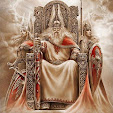Chess is on its way to being implemented in schools, after unanimously approving the non-law proporsal that the PSOE (Spain) has presented in the Education and Sports Commission of the Congress. After this first step, Pablo Martín, deputy who has debated the proposal, explains to Verne that the objective is that this "very useful pedagogical tool that has a very small cost" ends up being a school subject.
Martín himself is fond of chess and, in fact, prepared the proposal with the help of Juan Ramón Galiana, his chess teacher in Mallorca, and Leontxo García, a specialized journalist collaborating with El País and author or a report that summarizes the benefits that He has chess for children. This report recalls that the proposal is not born from scratch: there are already more than 300 public and private schools in chess is a compulsory subject, following the recommendation made in 2012 by the European Parliament.
1. Help develop intelligence: according to the report by Leontxo García, which collects data from studies published in several countries, "chess children develop more intelligence and achieve better academic results (by 17% on average) than non-chess players, especially in mathematics and reading (precisely the two fields where Spanish students fail most, according to the Pisa Report)".
To give other examples: a report from the Kasparov Chess Foundation collects the results of various studies that show how chess improves creativity, problem solving, memory and concentration. Another test conducted in serveral Italian schools shows that this game contributes to the improvement of academic performance.
2. And not only intelligence: Miguel López, who has been a chess teacher, explains that this game helps children improve "their ability to concentrate and also to mature. They see that the acts have consequences and this helps them not to be excessively impulsive." For example, rules such as touched piece, played piece help to think before acting.
Leontxo García lists in his report the five intelligences that chess develops (of the eight in the Howard Garner classification): logical-mathematical, linguistic, spatial, intrapersonal and interpersonal.
3. It is good for the little ones: López points out that you can teach even after three years; "the smaller, the better, because it will influence your ability to reflect and your patience. Although you can't demand that they play a three-hour game."
Leontxo García considers it interesting how it helps preschool children (3-5 years old) "because it shows that - contrary to what the experts maintained until recently - abstract intelligence can be worked before 6 years", which is why Pablo Martín explains that the PSOE (Spain) will propose that "chess enters as a subject in primary education". (Also because "the high school curriculum is more loaded." García mentions the example of the Colombian Adriana Salazar, in whose center in Bogotá "4-year-old children play chess, play the violin and practice taekwondo. It uses the transverse method (teaches geometry and encourages spatial vision, among many other applications), which has also worked well with older children (for example, when explaining universal history in parallel with the history of chess)."
4. It is good for the elderly: "the frequent practice of chess delays and improves brain aging, and could prevent and delay Alzheimer's disease," explains Leontxo García, who describes the game as a "mental gym."
5. It is a game: the game is the child's way of learning to relate to the world, improves social skills and imagination, and encourages creativity, as well as helping learn social norms and cope with frustration: "in chess you lose, as in any game, and nothing happens," López tells us.
The fact that it is a game is also an extra motivating factor: "at the outset, it is more fun than a class," notes López, who still remembers that in the lessons he taught (optional), "you could quickly see who He had signed up for interest and who, bound by his parents."
6. But it is not just any game: the game always has positive effects for a child, but chess has other advantages over bridge, for example, which is studied in many universities because of its relationship with mathematics: "there is no luck factor," say López, recalling that the players they do not depend on the distribution of cards or the result of a roll of dice. "And in addition there are many variants. No two chess games are the same." Leontxo García adds that its infrastructure is cheap, that it is universal, that it has more than 15 centuries of history and, above all, that it has "very interesting connections with art, science, computers, pedagogy and psychology".







